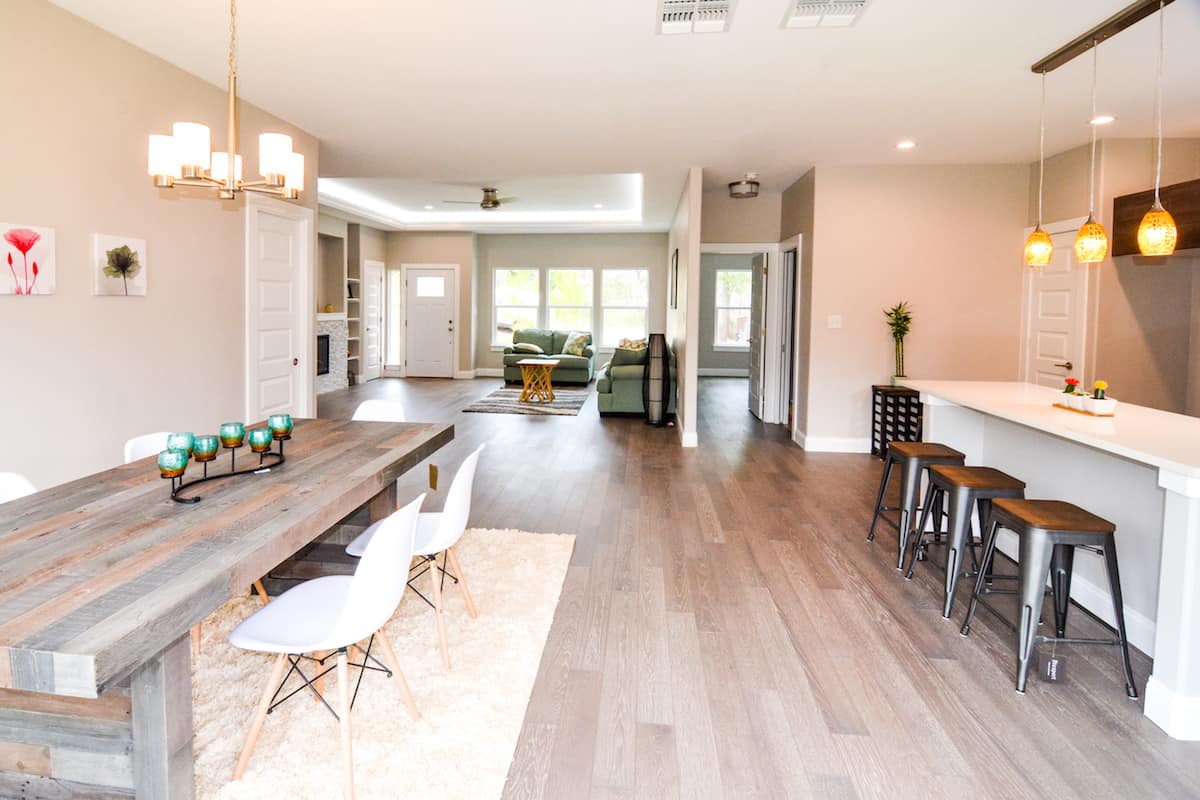
What we do shouldn’t be considered special, it’s simply Home Building, as it should be.
We got into home building after having our first family home built for us. At the time, the process appeared to be so incredibly easy, we concluded that we could do it. Where we live, there is no required education, no required license, and no inspections to pass. To become a home builder, all you have to do is say, “I’m a home builder.” From that point forward, you are a sole proprietor by default. You don’t have to fill out papers or anything. To actually build a home, all you have to do is call the trades and schedule them. In fact, many builders can build an entire house remotely from their phone. The only thing you might need to look up, which is easy, is the order in which to schedule the trades.
Traditional home building really is that easy. But it’s also flawed. If you’re ok with those flaws, you could make a good living working from home.
I’m not ok with those flaws. In fact, when I started noticing them, I was shocked that these flaws have existed for so long while an entire industry appears not to notice them.
The flaws I’m talking about are leaky wall assemblies that accumulate moisture and never dries out. Grossly oversizing HVAC systems that consume enormous amounts of energy while never being able to keep humidity down. Putting 150 degree rooms on top of a house you’re trying to keep cool. Then putting the machine that’s meant to cool the house, inside that 150 degree room (otherwise known as vented attics). And so on.
I began to question these flaws. I asked people why they build the way they do. The answers I got were “My father taught me this way”, and “This is the way we’ve always done it.” I also would hear ,”all homes need maintenance.”
Well, I think we (the industry) can build homes that don’t need much maintenance, and more importantly, I think we can build homes that don’t get moldy in the walls and have better indoor air quality.
The fix to this problem is easy. There are many building scientists that have studied physics, analyzed case studies of building failures, and done experiments to prove what works. People have figured this out. The hard part is to get the estimated 11 million people that work in our industry on board.
If you’re a custom home builder that does many things “in-house”, this is probably not going to be too difficult. If you have people you pay, you simply tell them to do things differently. In addition to custom homes, I also build spec homes. With spec homes, most of the work is subcontracted out. This is a big challenge when it comes to building high performance. Most subcontractors will not be on board. The fix to this is to keep essential tasks in-house, like weatherizing, flashing, taping, and anything to do with keeping water out. These tasks are minimal compared to the tasks it takes to build the home. And never trust HVAC companies to calculate load requirements and to design the systems. Use engineers and consultants that understand building science. Then take those plans and have the HVAC companies only execute them.
I make this sound simple, but if you want to become a successful high performance builder, you should study building science to learn the concepts and then watch “how-to” videos to get examples of how to execute. Your specific how-to will be different than others’ because you’ll need to apply the concepts to the materials you use and building assemblies common in your area. Who knows, maybe I will be one to make how-to videos.
My mission is to make high performance normal. With that said, I am always open to learning from others and demonstrating what I have learned. Building homes that are durable, comfortable, and energy efficient shouldn’t be special. It’s Home Building, as it should be.

